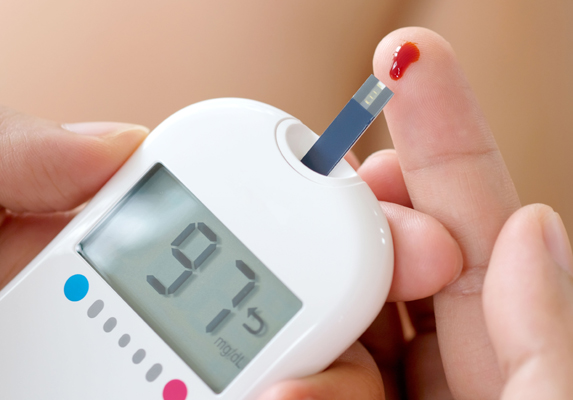How to Work with Your Primary Care Provider to Enhance Your Diabetes Treatment

Collaborating closely with a primary care provider (PCP) is essential to ensuring effective diabetes treatment. Managing diabetes is a lifelong commitment involving medication, lifestyle changes, and regular monitoring. Your role in this process is crucial. The PCP's role extends beyond prescribing medication; it includes creating a personalized treatment plan, monitoring progress, and providing support throughout the process. By actively engaging with a PCP, you can enhance diabetes management and improve your overall health outcomes. Here are five key strategies for working with a PCP to optimize diabetes treatment.
1. Develop a Personalized Treatment Plan
Every individual's experience with diabetes is unique, and a one-size-fits-all approach does not work. This is why a personalized treatment plan, developed in collaboration with a primary care provider, is crucial. The plan, which may include medication, diet, exercise, and blood sugar monitoring recommendations, is tailored to your specific needs. Open communication about your lifestyle, challenges, and preferences is key, allowing the provider to make practical and effective adjustments to the treatment plan. The goal is to find a balance that supports managing diabetes while fitting into your daily life.
2. Set Realistic Health Goals
In collaboration with a primary care provider, setting achievable health goals is a crucial part of diabetes management. These goals may include maintaining a target blood sugar range, losing weight, or reducing cholesterol levels. A PCP can help set these goals based on medical history, current health status, and long-term aspirations. Setting realistic goals is important because it provides a sense of direction and accomplishment. Regular check-ins with the PCP allow for tracking progress and making any necessary adjustments to keep the treatment plan on course.
3. Keep Up with Regular Monitoring
Regular monitoring is a fundamental aspect of effective diabetes management. Monitoring blood sugar levels at home is an essential part of the process. Still, regular check-ups with the primary care provider ensure they also evaluate overall health. During appointments, the PCP will likely check HbA1c levels, blood pressure, kidney function, and cholesterol levels. These tests provide a comprehensive view of how well the diabetes treatment works. If any issues arise, such as fluctuating blood sugar levels or other health concerns, the PCP can intervene early to adjust the treatment plan.
4. Discuss Medication Options
There are many different types of medications available for diabetes, including oral medications, insulin, and other injectable drugs. A primary care provider can guide the patient through the options, explaining the benefits and potential side effects of each. If one type of medication is not achieving the desired results, it is important to discuss alternatives with the PCP. Sometimes, a combination of medications may be necessary to control blood sugar levels effectively. Open communication about how medications are working or not working allows the PCP to make informed decisions about treatment adjustments.
5. Incorporate Lifestyle Changes
While medication plays a vital role in diabetes treatment, lifestyle changes are equally important. A primary care provider can offer guidance on making healthier choices, such as adopting a balanced diet, engaging in regular physical activity, and managing stress. Working with the PCP to develop a realistic plan for these lifestyle changes can greatly enhance the effectiveness of diabetes treatment. For example, the PCP may refer the patient to a dietitian or recommend an exercise program that fits the patient’s abilities and schedule.
Consult a primary care physician about diabetes treatment
Working closely with a primary care provider is key to enhancing diabetes treatment. Individuals can effectively manage their condition by developing a personalized treatment plan, setting realistic goals, keeping up with regular monitoring, discussing medication options, and incorporating lifestyle changes. The relationship with the primary care provider is a partnership and active involvement in the process is critical to achieving the best possible health outcomes. For more information, schedule a consultation visit today at South Florida Doctors Group Davie.
Request an appointment here: https://davie.southfloridadoctorsgroup.com or call South Florida Doctors Group Davie at (954) 903-0484 for an appointment in our Davie office.
Check out what others are saying about our services on Yelp: Diabetes Treatment in Davie, FL.
Related Posts
High cholesterol affects the way fat circulates in the blood, and effective high cholesterol treatment helps lower the risk of heart attack, stroke, and other serious health problems. Cholesterol levels respond to a combination of lifestyle habits, genetics, and underlying health conditions. The goal is not only to improve lab numbers, but also to protect…
Fitness and nutrition are vital for supporting women's health, but many women tend to neglect themselves with their busy lives. If you need or want assistance supporting your health, a doctor can provide fitness and nutrition tips for women. With that in mind, there are four simple steps one can take to begin the path…
A sore throat is a common symptom that usually gets better with rest, drinking fluids, and over-the-counter medicine. However, you should see a same day doctor if your symptoms suggest something more serious. By visiting our team of medical professionals, you can help ensure you achieve lasting symptom relief on the path to recovery.A sore…
A family practice, also known as family medicine, is a medical specialty that treats patients of varying ages. Family medical providers complete medical training and licenses to address various medical issues and provide personalized healthcare for the entire family. This approach to medicine ensures that individuals receive ongoing and collaborative medical treatment throughout their lives.Family…
